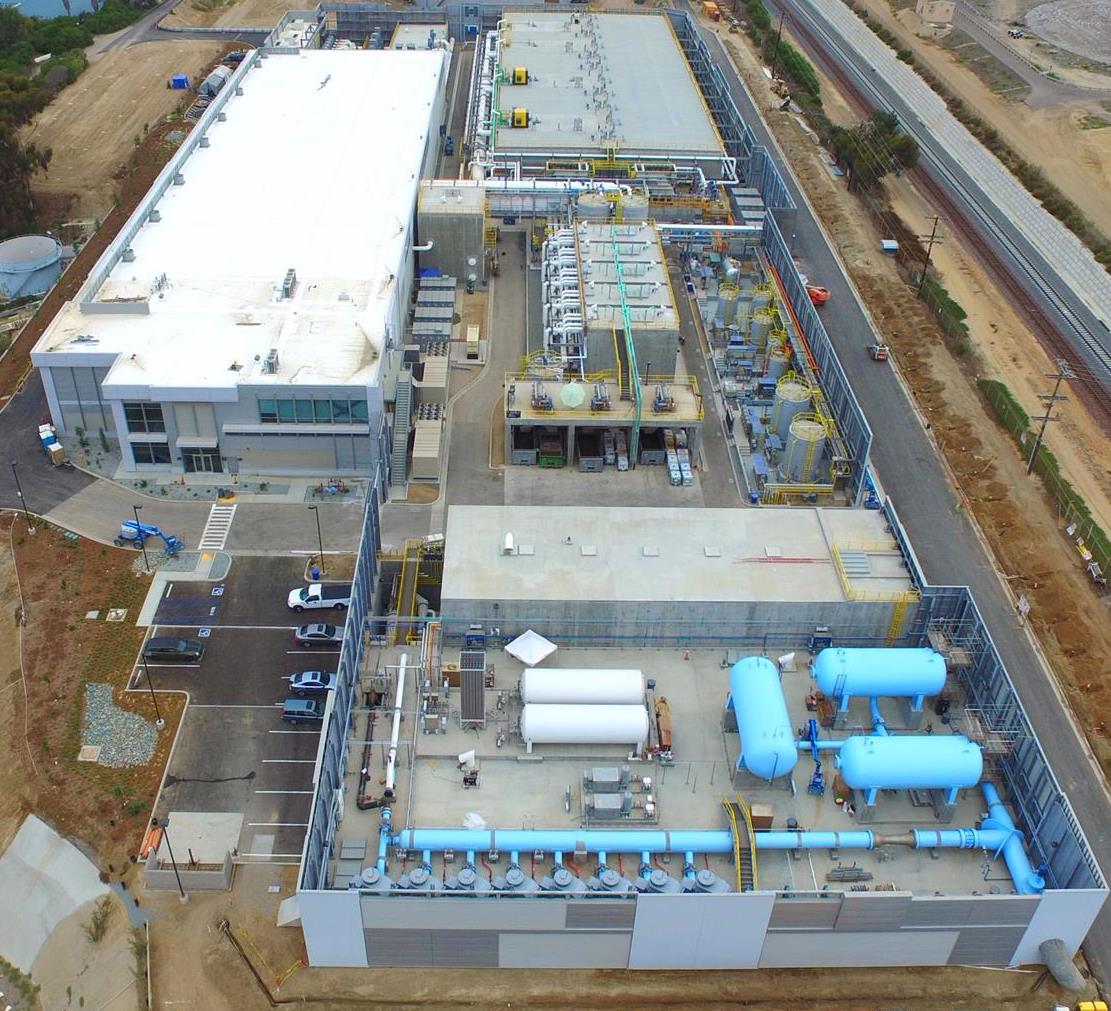U.S.A. – U.S. Senator Mazie Hirono announced $18.9 million in federal funding for the Honolulu Board of Water Supply's new desalination facility. The Kalaeloa Seawater Desalination Project will use reverse osmosis to convert seawater into potable water, reducing reliance on Central Oahu's water transfers and groundwater sources during droughts. Funded through the U.S. Department of the Interior's Bureau of Reclamation Title XVI Program, the facility will initially produce 6,435 m3/d, with future expansion plans for up to 18,927 m3/d. Kalaeloa Desalco LLC will construct and manage the facility, slated to begin operations in 2027. The project supports sustainability and aims to meet growing water demands in the Ewa district, expected to increase by 30% by 2040. (Spectrum News)
U.A.E. – Veolia, through its subsidiary SIDEM, has secured a $320 million contract for the first phase of the Hassyan desalination plant in Dubai, UAE. The plant, which will utilize reverse osmosis technology, is designed to produce 818,000 m3/d and is expected to supply enough drinking water for two million people by 2026. This contract, awarded by Dubai Electricity & Water Authority (DEWA) and ACWA Power, is part of a larger $914 million project for plant construction and operation. Veolia’s role includes engineering and supplying key water technology for the facility. The project highlights a commitment to advanced, large-scale desalination solutions in the UAE. (ENR)
SOUTH AFRICA – Transnet National Ports Authority (TNPA) plans to procure renewable energy and desalination plants at Nelson Mandela Bay ports to enhance climate resilience and reduce energy costs. TNPA has issued requests for proposals for two solar-powered seawater desalination plants capable of producing 500 to 800 m3/d of potable water, as well as a 7MW hybrid renewable energy plant with a 6MWh battery storage system. These projects aim to ensure reliable freshwater and energy supplies for port users while supporting decarbonization efforts. TNPA's initiatives align with global trends towards greener and cleaner shipping practices, aiming to develop efficient, cost-effective, and environmentally friendly port operations. These investments are crucial to mitigating climate change risks, as highlighted by a recent report from the Presidential Climate Commission on South Africa's climate action status. (BusinessLive)
MOROCCO – CaixaBank and COFIDES are jointly financing Spanish multinational ACCIONA for the construction of a major desalination plant in Casablanca, Morocco, with each entity contributing $33.75 million to the project. The total investment for the plant exceeds $707.7 million, and the facility will have a production capacity of 821,917 m3/d, primarily for human consumption, serving five cities. This project, developed under a public-private partnership with Morocco's National Office of Electricity and Drinking Water, is expected to enhance water availability in response to growing demand from tourism, industry, and domestic use. CaixaBank, with its established presence in Morocco, is facilitating the project, while COFIDES emphasizes the plant's significance as Africa's largest desalination facility and its contribution to addressing water scarcity and climate change. (Smart Water Magazine)
U.S.A. – Rep. Mike Levin has secured $32.2 million in federal funding for three desalination projects aimed at enhancing water security in north San Diego and South Orange counties. $19.4 million will go to upgrade the San Diego County Water Authority‘s Carlsbad desalination plant by improving the seawater intake system. $7.7 million will go to the South Coast Water District’s Doheny Ocean Desalination Project and $5.3 million is allocated for the city’s Mission Basin Groundwater Purification Facility, to increase the amount of drinking water produced from brackish groundwater in the area. The funding, part of the Bureau of Reclamation’s WaterSMART program, is provided through the Bipartisan Infrastructure Law. (Times of San Diego)

The San Diego County Water Authority will receive $19.4 million funding to upgrade the Carlsbad desalination plant in California, U.S.A. Credit: Carlsbad Desal
PHILIPPINES – Metro Pacific Iloilo Water (MPIW) is developing a desalination plant in Ingore village, La Paz district, to address the severe water shortages in Iloilo City. Taking water from the Iloilo Strait the plant aims to produce 50,000 to 60,000 m3/d of potable water. Currently, MPIW relies on Metro Iloilo Bulk Water and FLO Water Resources for its supply, but the new plant will enhance local water availability and efficiency. The facility will use pre-treatment and reverse osmosis technologies, powered by a $39.37 million waste-to-energy project to manage costs. (DailyGuardian)
SCIENCE – Australian researchers have developed a new desalination method that promises to be more cost-efficient and energy-saving than traditional reverse osmosis techniques. This innovative approach, utilizes low heat from sources like sunlight or industrial waste to drive the desalination process. By heating water through narrow channels and using a thermal gradient to drive salt ions to the cooler side, the researchers have significantly accelerated the diffusion process, reducing seawater salinity from 30,000 to under 500 parts per million. The technique, which avoids the need for vaporization, has the potential to provide clean water to millions and address the global water scarcity crisis. The researchers aim to demonstrate their concept with a pilot plant in Tonga and hope to have a commercial unit ready within eight years. (The Cool Down)

